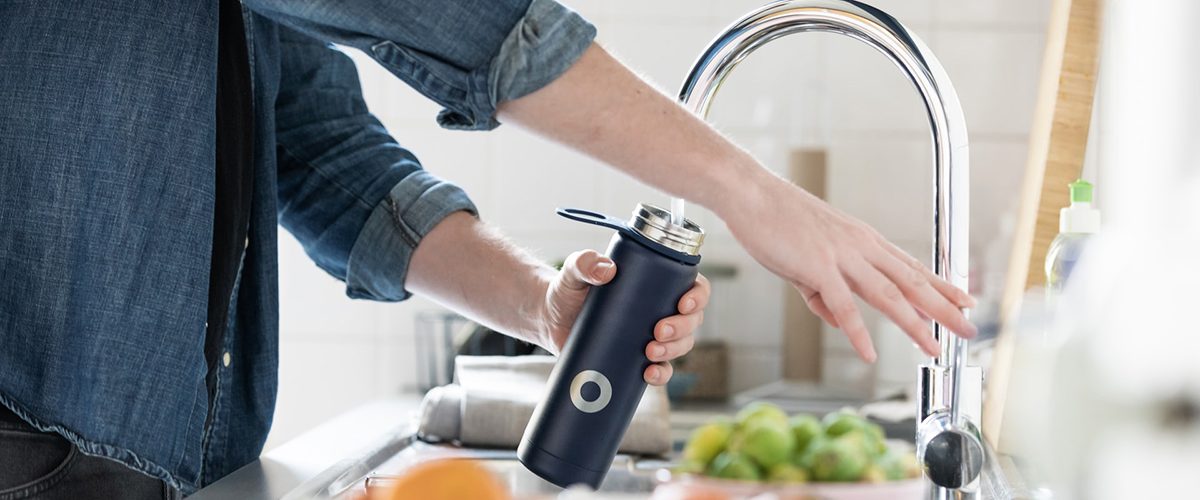If, like me, you love the taste of bottled water but are looking to cut down on your use of plastic, a water filter with a reusable bottle might be the answer.
We tried out the Zerowater 12 cup/2.8 litre capacity jug filter, which claims to remove 99.6% total dissolved solids (TDS) from water, which includes fluoride and chlorides that are added to tap water as well as traces of other metals that could be in there such as lead and copper. This makes the Zero filtered water the equivalent, in terms of TDS, as purified bottled water.
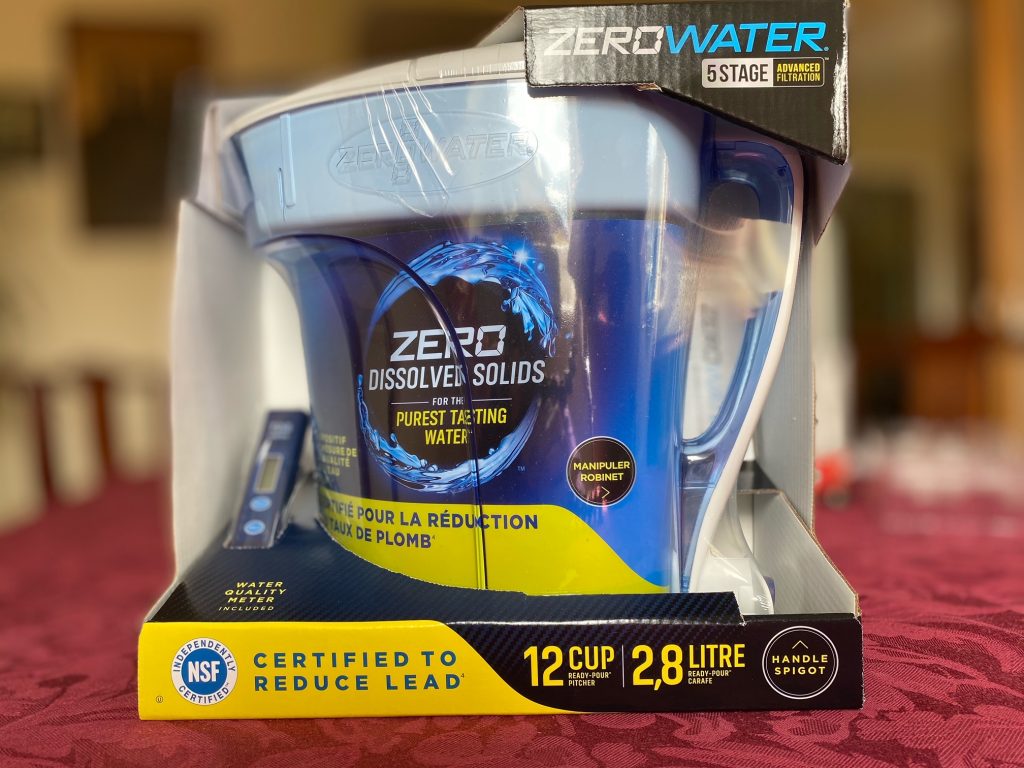
But how do we know that?
The filter comes with a water quality reader, which you dip into the water and it gives you an immediate TDS reading on a digital screen. This allows you to test the quality of your tap water as well as the filtered product.
I tried it out with a glass of tap water first and the reading came back at 52 parts per million (PPM). This is very good and the lower end what we’re told is the typical range for the UK, which is said to be between 51 and 200 PPM. There are some UK cities, however, where readings above 300 PPM have been reported.
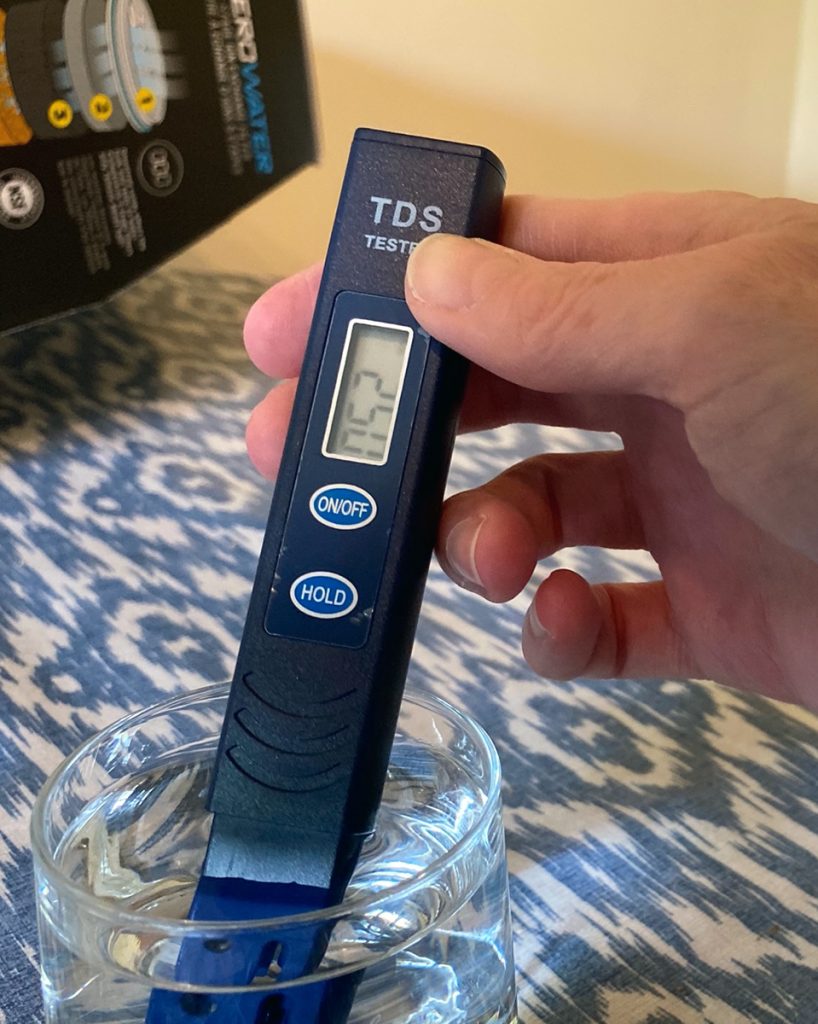
If you’re familiar with using water filter systems, the filter itself is bigger than some others and, unlike carbon-only water filters, it doesn’t need to be washed through several times before drinking for the first time.
The size is to make room for its 5-stage ion-exchange technology. The water also takes a couple of minutes to filter through. But the spout is separated from the water reservoir, so if you really couldn’t wait you could pour a glass while the rest of the water is still filtering through.
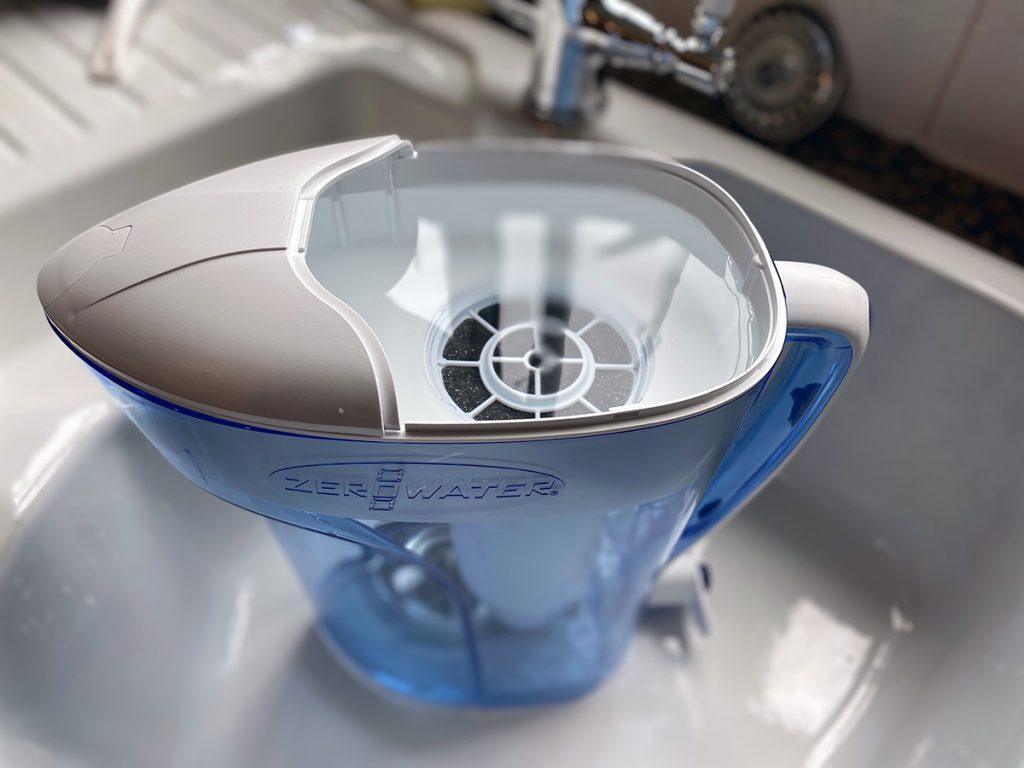
The Zerowater 12 cup/2.8 litre capacity Jug is a little on the large side to fit into a standard larder fridge. But it will fit into a larger fridge freezer or American-style fridge and has a button release on the back so you can let kids help themselves without them needing to lift a heavy jug.
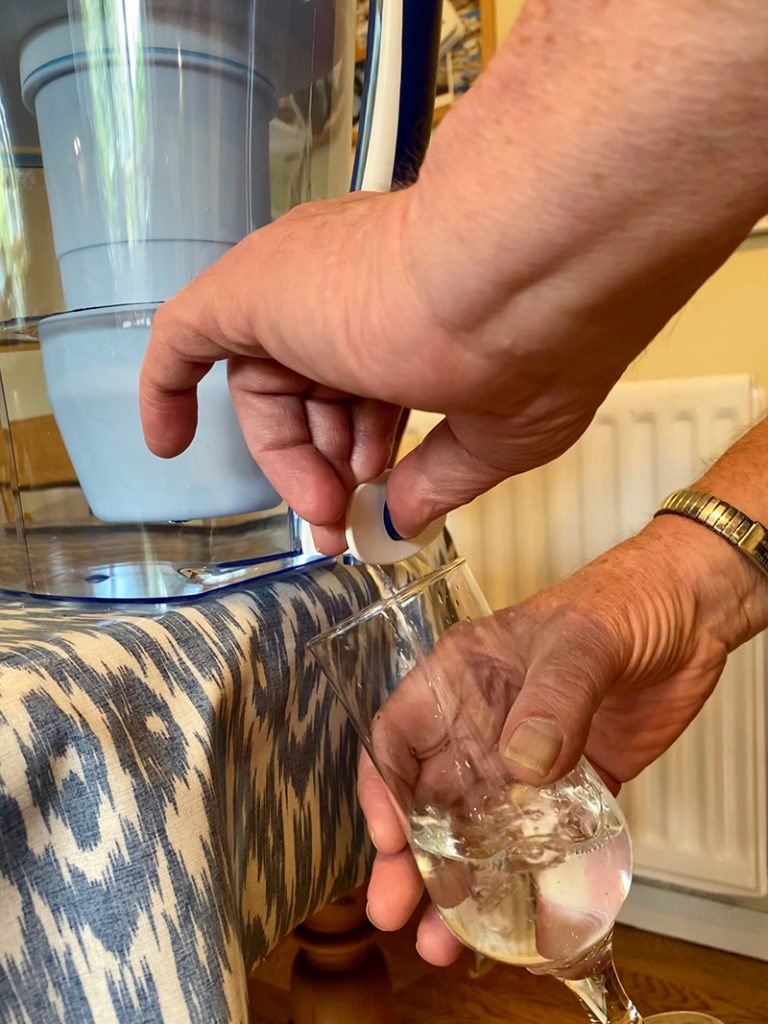
After filtering the first time the Zerowater reading came back at 0.26. This was almost half the original tap water reading, but, since the instructions says the filter needs replacing at 6 PPM, I went through the trouble shooting stages to check it was working properly.
On closer inspection it turned out that I hadn’t sealed the filter fully when attaching it, so some of the tap water was escaping through the gap into the jug. Once I tightened the seal the next filtered jug gave a zero reading on testing.
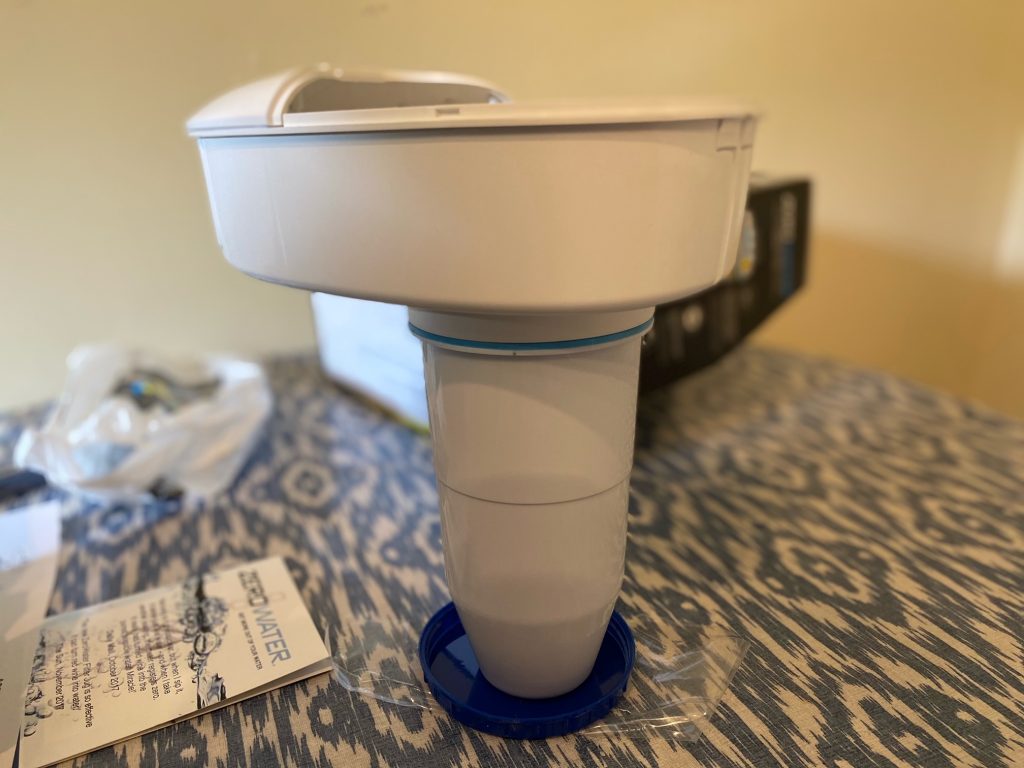
In term of taste, the filtered water tastes thinner and clean. It certainly matches up with many bottled waters for taste.
The water quality reader will let you know when the filter is ready to be replaced. But as a general guide the company recommends every 95-150 litres if your tap water quality is in the typical UK range pf 51-200 PPM TDS. If it is higher than this where you live, you may need to replace it sooner.
Once you’ve paid the initial £39.99 for the filter jug, it probably works out on average between 10p-15p a litre of water, depending on whether you choose to buy your filters individually, in a multi-pack, or on a subscription.
If you do like to drink a lot of bottled water the Zerowater filter is a good, sustainable alternative for staying hydrated.
For more details visit Zerowater.co.uk

